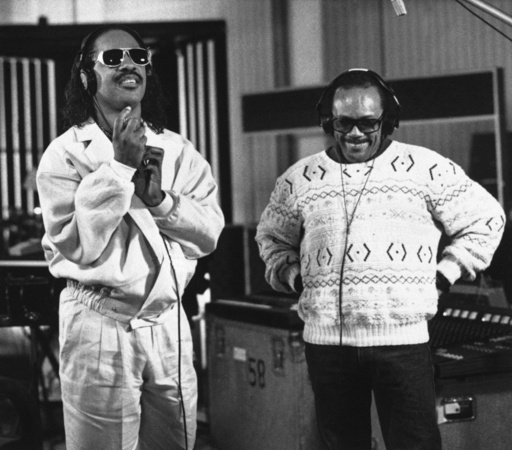
Quincy Jones, a towering figure in the music industry, passed away at the age of 91 at his home in Los Angeles on Sunday night, surrounded by family. His remarkable career left an indelible mark on the musical landscape, and he was set to receive an honorary Academy Award later this month. Jones, who won 28 Grammy Awards, collaborated with a diverse range of artists throughout his lifetime, including legends like Ray Charles, Frank Sinatra, and Michael Jackson.
To truly honor his impactful legacy, one can explore the music he produced and the talent he nurtured. Starting with his early works, listeners can dive into “Liza” from his debut album “Jazz Abroad,” a project he shared with Roy Haynes. Another significant highlight from 1963 is “Honeysuckle Rose,” a track on the album “Ella and Basie!” featuring Ella Fitzgerald and Count Basie’s orchestra. This song showcases Jones’ jazz expertise through its evolution from simple vocals and bass to a grand arrangement complete with Fitzgerald’s delightful scat solo.
Moving into pop music, the 1964 hit “It’s My Party” by Lesley Gore demonstrates Jones’ ability to blend catchy melodies with poignant themes. Despite the upbeat rhythms and vibrant horn sections that characterize the song, it tells a heart-wrenching story of heartbreak, perfectly encapsulating the emotional juxtaposition often present in Jones’ productions.
In the same iconic year, Jones arranged Frank Sinatra’s timeless classic “Fly Me to the Moon,” found on the album “It Might as Well Be Swing.” This arrangement, with its lively rhythm and memorable flute accompaniment, solidified the song’s place in music history. The producer’s contributions to Sinatra’s work became a cornerstone of his legacy.
Jones also made his mark on film scoring, notably for the 1967 classic “In the Heat of the Night.” The title track, performed by his close friend Ray Charles, melds R&B with gospel influences, underscored by an engaging tenor sax solo that adds depth to the composition.
Perhaps his most notable partnership was with Michael Jackson, with whom Jones worked on groundbreaking albums such as “Off the Wall,” “Thriller,” and “Bad.” A standout from “Off the Wall” is the infectious disco-funk track “Don’t Stop ‘Til You Get Enough,” showcasing Jackson’s signature falsetto and setting the stage for the singer’s historic career trajectory.
Jones’ own 1981 album “The Dude” features the heartfelt ballad “Just Once,” sung by James Ingram. This song is often celebrated as one of the genre’s greatest piano ballads, highlighting the emotional intensity that characterized much of Jones’ work.
From the legendary “Thriller” album comes “Billie Jean,” one of the most recognizable pop songs in music history. Jones’ production on this track is a masterclass in post-disco funk, and the album itself shattered sales records, marking a pivotal moment in the music industry.
In another pivot, Jones collaborated with Donna Summer in 1982 on her self-titled album, which included “Love Is in Control (Finger on the Trigger).” This upbeat, synth-infused track earned a Grammy nomination, proving Jones’ versatility across genres.
Jones was also instrumental in the production of the 1985 charity single “We Are the World,” which brought together numerous music icons for a noble cause. Coordinated by Jones, the project featured artistes like Bob Dylan, Tina Turner, and Bruce Springsteen, all joining in an effort to aid famine relief in Africa. Lionel Richie, who collaborated on the song, referred to Jones as “the master orchestrator” for his pivotal role in the project’s success.
Later, in 1989, Jones revisited the classic track “I’ll Be Good to You,” originally produced for the Brothers Johnson in 1976. This time, he re-recorded it with Ray Charles and Chaka Khan, reimagining the song with a contemporary flair while maintaining its vibrant essence.
Quincy Jones leaves behind a legacy that transcends generations, a testament to his unparalleled contributions to music that will be celebrated and cherished for years to come.
